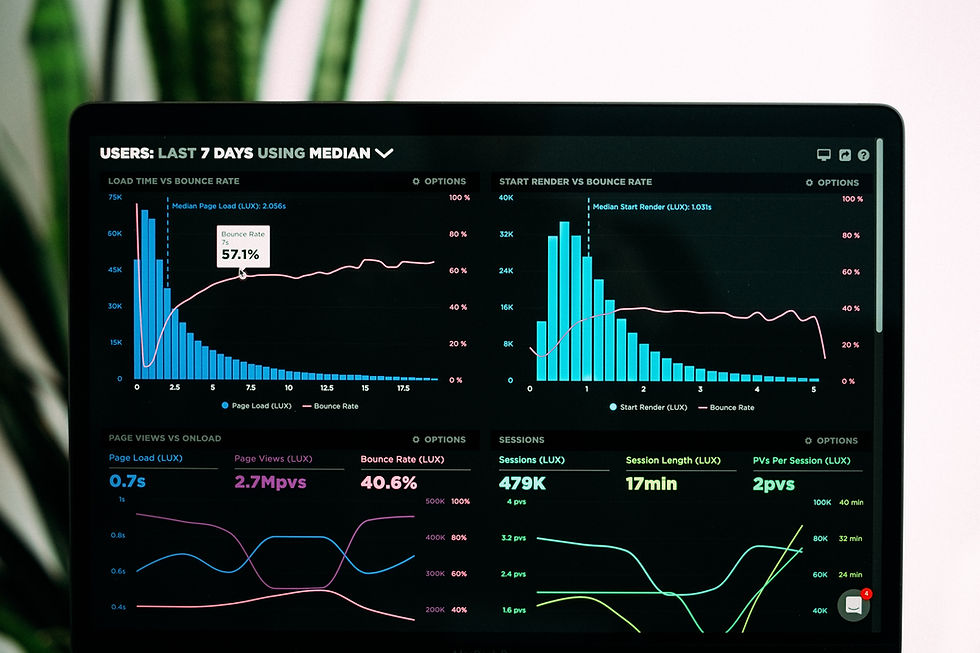Breaking Ground: Innovative Fintech Software Solutions Shaping the Future
- nickel fox
- Aug 19, 2023
- 2 min read

The world of fintech is a hotbed of innovation, where cutting-edge technologies are converging to redefine how we engage with financial services. From blockchain's secure transactions to artificial intelligence's automated insights, fintech software solutions are revolutionizing the financial landscape. Let's delve into some of the most groundbreaking solutions that are driving this transformation:
1. Blockchain
Innovative Use: Blockchain technology, a decentralized and tamper-proof digital ledger, is transforming financial transactions through increased security, transparency, and efficiency. Impact: Blockchain enables secure and transparent peer-to-peer transactions, reducing the need for intermediaries in processes like cross-border payments and supply chain finance. Example: Ripple, a blockchain-based platform, facilitates fast and cost-effective cross-border payments by connecting banks and payment providers.
2. Artificial Intelligence (AI)
Innovative Use: AI-powered algorithms analyze vast amounts of data to automate financial tasks, enhance decision-making, and provide personalized insights. Impact: AI-driven tools improve efficiency by automating tasks like fraud detection, customer support through chatbots, and credit scoring. Example: Kasisto's conversational AI platform powers virtual assistants for financial institutions, offering customers natural language interactions and personalized recommendations.
3. Machine Learning
Innovative Use: Machine learning algorithms use historical data to predict future trends, behaviors, and preferences, creating personalized financial products and services. Impact: Machine learning enhances customer experiences by tailoring recommendations for investment strategies, insurance policies, and lending terms. Example: Wealthfront uses machine learning to automate investment decisions based on users' risk tolerance, financial goals, and market trends.
4. Big Data
Innovative Use: Big data analytics process massive volumes of information to provide insights into financial markets, customer behavior, and trends. Impact: Big data enables financial institutions to make informed decisions, enhance risk management, and create targeted marketing campaigns. Example: Kensho, a data analytics platform, analyzes market events and news to provide real-time insights for investors and financial professionals.
5. Robo-Advisors
Innovative Use: Robo-advisors use algorithms to create and manage investment portfolios based on users' risk profiles and financial goals. Impact: Robo-advisors democratize investing by providing affordable and accessible investment management for individuals with varying levels of expertise. Example: Betterment, a robo-advisor platform, constructs and rebalances portfolios using algorithms that factor in users' goals, time horizons, and risk tolerance.
6. RegTech (Regulatory Technology)
Innovative Use: RegTech solutions leverage technology to streamline compliance processes, enhance regulatory reporting, and mitigate risks. Impact: RegTech reduces the cost and complexity of compliance by automating data collection, analysis, and reporting for regulatory requirements. Example: Alloy offers a RegTech platform that automates KYC (Know Your Customer) processes, helping financial institutions comply with identity verification regulations.
Conclusion:
The world of fintech is a breeding ground for innovation, where technologies like blockchain, AI, machine learning, and big data converge to reshape financial services. These solutions not only enhance security and transparency in transactions but also streamline operations, provide personalized experiences, and drive informed decision-making. As these technologies continue to advance and intertwine, the potential for further transformation within the fintech landscape is boundless. The journey to reimagine and revolutionize the financial industry is being led by these pioneering fintech software solutions, paving the way for a future where financial services are more accessible, efficient, and personalized than ever before.





Comments